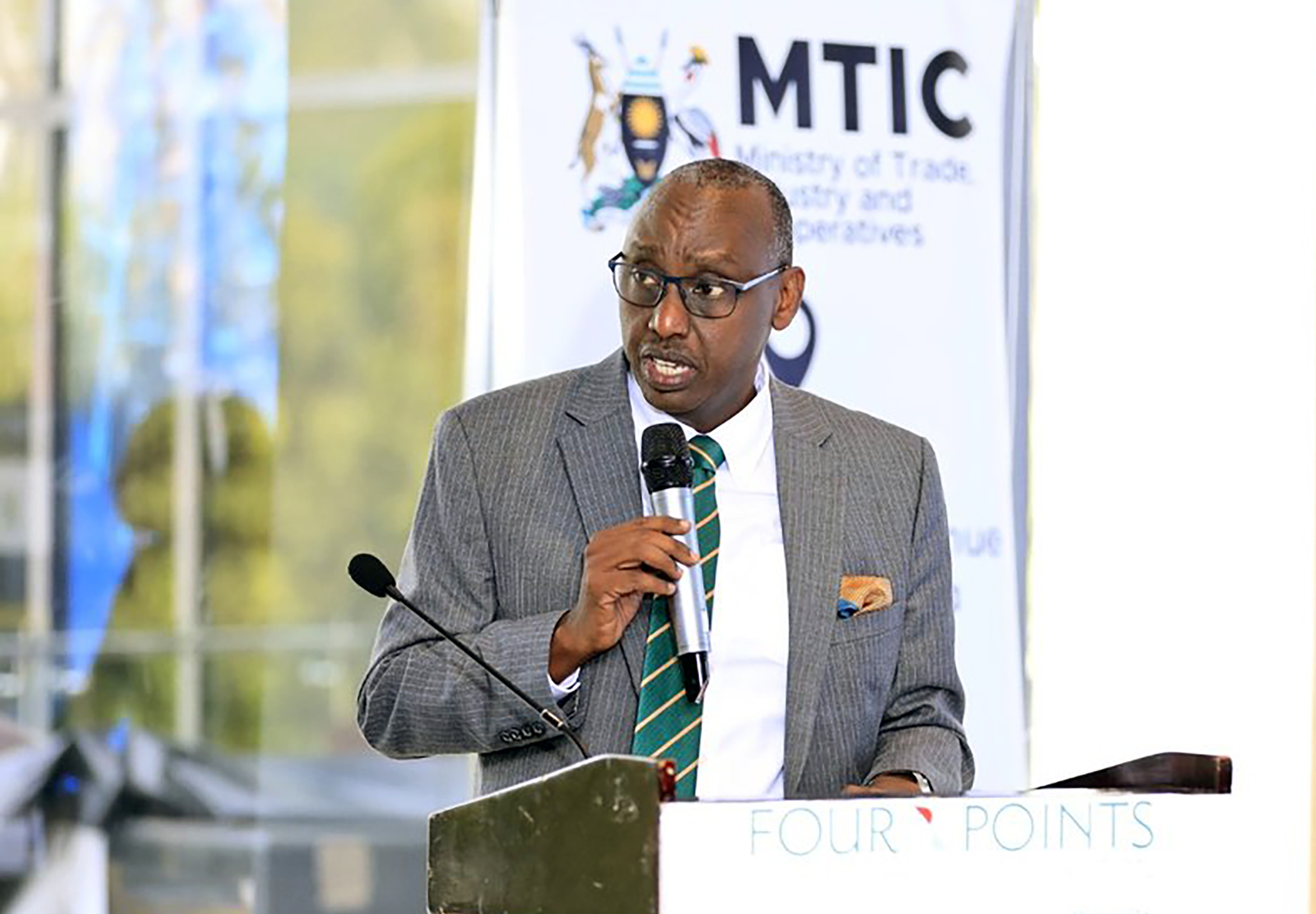Creatives: Africans Sitting On Goldmine

Rema Namakula
The bustling main hall at Protea Hotel in Kololo is filled with passionate voices and determined spirits. As the sun rises over the vibrant cityscape, artists, filmmakers, musicians, and innovators have gathered to unravel the untapped potential of Uganda's rich cultural tapestry. At the heart of the discussion lies a plea for recognition and support from the government. Amidst the throngs of creatives, one sentiment echoes loudly: "No one is thinking about us."
Hannington Bujjingo, a prominent comedian, emphasizes the critical role of the arts in driving employment and economic growth. "We are the biggest employer of young people," he declares, urging policymakers to prioritize the needs of the creative sector in national planning strategies. Bujjingo�s call for action reverberates through the room, resonating with artists who have long felt marginalized by the system. Yet, amidst the challenges, there is a sense of hope and determination. "We know quite a lot," Bujjingo asserts, highlighting the industry's resilience and ingenuity in the face of adversity.
The workshop, which has centered on 'collective management operations and licensing practices,' has brought together determined artists with the support of the copyright watchdog, the Uganda Registration Services Bureau (URSB), rallying alongside them. Amidst the dialogue, there is a palpable sense of unity and purpose. "We have stopped the fighting," declares Mercy Kainobwiso, the URSB boss, reflecting on a decade of collaboration and progress within the industry. Together, stakeholders have worked to address issues of governance, transparency, and accountability, laying the foundation for a more inclusive and sustainable creative ecosystem.
- Yet, challenges remain. From the need for greater government investment to the imperative of capacity building and education, there is much work yet to be done. But amidst the challenges, there is a shared commitment to building a brighter future for Uganda's creative industry. For several generations, Bujjingo asserted, Uganda has been teeming with creative talent waiting to be unleashed. From musicians to filmmakers, artists to writers, Uganda's creative industry brims with potential, yet it grapples with issues including commercialization and protection of intellectual property rights. �In this nation where the culture of freely using creative works prevails, the need for robust copyright protection mechanisms becomes imperative,� he insisted.
According to Ms Kainobwisho, the registrar general, there is need for a transformative shift in the way the nation perceives and values creative output, as countless artists and creators struggle to earn a living from their craft. She stressed investment in copyright protection, emphasizing the need for sophisticated monitoring systems to track and monetize the usage of creative works.
With over 315 radio stations across the country, she noted, tracking the usage of creative works presents a monumental task. Kainobwisho underscored the necessity of government intervention to implement monitoring infrastructure that can accurately track the dissemination of creative content. She believes the move has potential economic gains, citing examples from neighboring countries like Zimbabwe, Malawi, and Kenya, where strategic investments in copyright protection have yielded significant returns.
- �Collective Management Organizations (CMOs) can be properly empowered to play a pivotal role in safeguarding artists' rights, because we are sitting on a goldmine, but this gold must be protected and mined. For instance, Uganda's creative industry contributes over $209m to the national economy, but needs further investment to harness its full potential,� she pointed out.


Hannah Coleman, an associate legal officer at the World Intellectual Property Organization (WIPO), outlined the complexities involved in crafting effective copyright legislation. According to Coleman, policymakers and stakeholders ought to come together to strengthen copyright governance and advocate for transparency, accountability, and international standards adherence within CMOs, laying the groundwork for a sustainable creative economy.
�The need for collective action and governmental commitment is paramount. The revision of outdated copyright laws, coupled with substantial investments in monitoring infrastructure, heralds a new era of prosperity for Ugandan creatives,� she said. But the path to comprehensive copyright protection is fraught with challenges. For example, resistance to change within the industry itself is not new, as some artists express concerns that stringent copyright enforcement may stifle their promotion and hinder their ability to reach wider audiences. Yet, proponents argue that protecting intellectual property rights is essential for ensuring the sustainability of the creative landscape.
Coleman insisted that by investing in technology, supporting copyright enforcement, and fostering a conducive regulatory environment, Uganda can unlock the full potential of its creative economy. On a continental scale, Africa's creative luminaries are also mobilizing for a way forward for the continent's burgeoning creative industries.
At a recent conference in Marrakech, Morocco, key stakeholders highlighted the pivotal role of content in shaping global perceptions and driving economic growth. According to Nyla Atazi, an entrepreneur and advocate for cultural industries in Morocco, Africa's creative industries are among our most visible sectors, shaping how the world sees the continent and its people.
- Through film, literature, fashion, food, music, or other forms of expression, she noted, the continent is striving to influence global culture in profound ways. �The creative arts therefore, highlight the immense potential for driving economic development and growth through job creation,� she said. Atazi emphasized that Africa's creative industries are not just about entertainment; they're about economic empowerment, cultural enrichment, and global influence.
- Peace Hyde, a media entrepreneur, noted that with an abundance of raw talent and a burgeoning digital economy, young Africans are increasingly drawn to sectors like fashion, music, cinema, and more. She said the evolution of digital tools has empowered creatives to succeed globally, as demonstrated by the rising success of African content on international platforms.
"African content is becoming a staple part of global content. It�s exciting to see the world recognize the value of our storytelling and invest in our narratives," she said. According to the African Development Bank, the continent�s creative economy is on the rise. Streaming and on-demand markets are projected to grow significantly, with millions of subscribers expected to join digital platforms in the coming years. The music industry alone is poised to reach over $0.5b in digital streaming revenue by 2025. However, despite this immense potential, there are challenges to overcome.
Obi Asika, Founder and Chairman of Dragon Africa, emphasized the need for African nations to invest in domestic platforms and support local creators. "IP is the key issue," he asserted, adding that "Investing in and protecting African intellectual property is essential for sustainable growth." George Gachara, Chairman and Founder, Heva Fund LLP, echoed this same sentiment, highlighting the importance of providing resources and training to young creatives. "We need equity and angel investors," he emphasized. "Financial institutions must move beyond statements and develop products tailored to entrepreneurs in the creative sector."
He stressed the need for governments to prioritize the creative economy, and putting African people first. "The creative and cultural industries are the expression of African identity, and they deserve to be at the forefront of national agendas," he noted. Africa's creative potential is limitless, but unlocking it requires concerted effort from governments, investors, and stakeholders. By investing in talent, protecting intellectual property, and creating supportive ecosystems, Gachara said, Africa can harness its creative industries to drive economic growth, social development, and global influence.

















